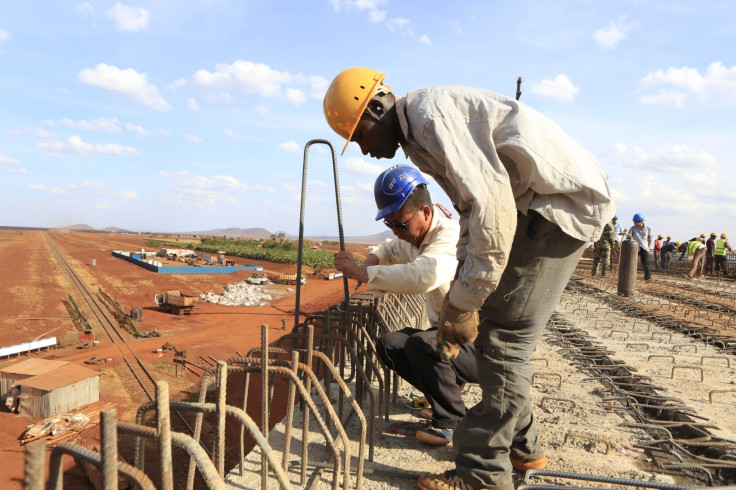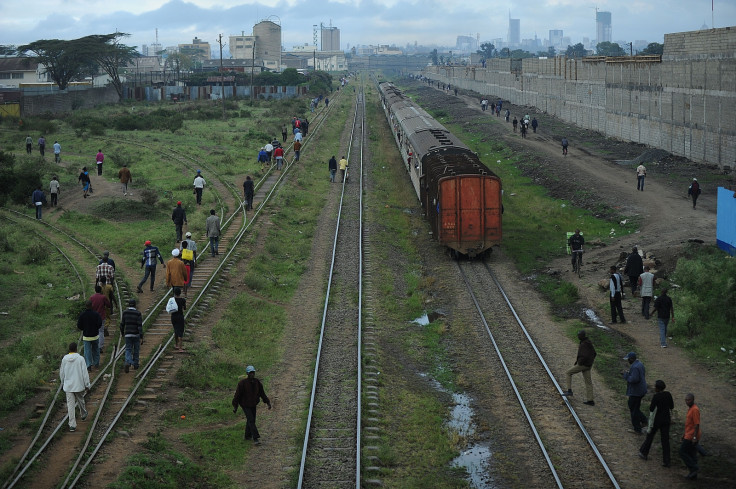Rise in anti-Chinese violence in Kenya forces halt of major rail project
200 youths attacked Chinese contract workers, accusing them of denying local workers job opportunities.

As rising global power China has been steadily increasing its business presence in the economically promising region of East Africa over the past decade through trade and partnership deals, however recent incidents are highlighting a growing anti-Chinese sentiment in some host communities.
China is currently involved in infrastructure projects in 35 African countries. In December 2015, the Chinese and Kenyan governments signed three agreements on the financing of China-aided projects totalling $152.4 million.
However, a recent surge in anti-Chinese violence has forced the Kenyan government to halt construction work on a $13bn railway project after hundreds of youths attacked Chinese contract workers accusing them of denying local workers job opportunities.
The Kenyan government ordered the stoppage of construction work on a stretch of the country's $13.8bn railway after 200 club and sword-wielding youths attacked and injured 14 Chinese nationals employed by its Chinese contractor on 2 August in Narok County.
The most ambitious project in Kenya since it gained independence in 1963 was originally planned to link the port city of Mombasa with the capital Nairobi, but plans for the Standard Gauge Railway were extended to the market town of Naivasha, in 2015.
While the Kenyan government contributed 10% of financing for the nearly completed Mombasa-Nairobi section of the project, China's Export-Import Bank (China Exim Bank) provided the remainder totalling KES327bn ($3.8bn). The $1bn Nairobi-Navaisha route is financed by China's Exim Bank.
China Road and Bridge Corporation (CRBC), a subsidiary of state-owned construction company China Communications Construction Company, was contracted to construct the project, which is part of the East Africa Community (EAC)'s Railway Masterplan.
Chinese workers attacked by disgruntled host community
China's increasing presence across the African continent has led to social conflict, and Professor Richard Aidoo believes the roots of anti-Chinese populism in Africa stems from the fear that China's financial capital and labour "competes with African development efforts".
The rift between Kenya's rapidly growing Chinese community and Kenyans was exacerbated last year when the Chinese Restaurant in Nairobi banned black Africans after 17:00, claiming the measure had been taken for security reasons. The establishment was later shut down and its owners summoned by authorities.
The attack at the Duka Moja railway construction site on the Narok-Maai Mahiu road in Narok County on 2 August came two weeks after some 300 youths staged a protest against the CRBC Duka Moja trading centre, accusing it of denying local workers job opportunities.
It is estimated that during construction, at least 60 new jobs a kilometre of track — or 30,000 jobs in total — will be created, according to the International Railway Journal. Contractor CRBC has also been criticised for being awarded the contract on a no-bid basis - due to China's involvement in funding the project.
Irungu Nyakera, the principal secretary for the transport minister, said youths attacked the Chinese rail workers as they demanded for a quota of the railway construction jobs. He told Parliament: "Local youths attacked the contractor's staff after complaining that they wanted to get the jobs on the project".
In September 2014, CRBC said it would require some 2,500 expatriates to build the 609km railway line. At the time. the contractor had brought in 600 workers ahead of the rail construction and claimed it was aiming to hire 30,000 Kenyans at the peak of the project. Julius Li, CRBC manager of liaison and cooperation, said this equated to less than 10% of Chinese employees compared to 90% of Kenyan workers that would be contracted.

'Why bring cheap labour at the expense of the local community?'
Narok Deputy Police Head, Charles Ouma, meanwhile, described how local workers had "demanded that a health facility be constructed in the area and that more locals be employed at the site". "They complained that the company had been awarding opportunities to outsiders and locking out the locals," he added. "The workers who were later reinforced by outsiders who were seeking employment at the company also demanded that the firm employed a local human resource manager."
Samuel Letoya, one of the protesting youths, was quoted as expressing the overall sentiments of the protesters: "Why bring cheap labour at the expense of the local community? We demand to be given the first priority".
According to a CRBC liaison officer quoted by the Daily Nation, tensions over employment of local youths at the construction site degenerated into violence when local workers employed by the company attacked fellow Chinese workers. "They came chanting and threatening to attack us and when we tried to reason with them, they refused and started attacking the people on the site," Jack Chen said.
Are Chinese firms taking jobs away from locals?
The claims that Chinese firms do not hire locals is disputed by leading scholars Barry Sautman and Yan Hairong, who have found that 4 out of 5 employees across 400 Chinese enterprises and projects over 35 African countries were locals.
According to the scholars, Chinese enterprises in Kenya are contributing to employment by localising workforces. Almost 80% of 75 Chinese companies surveyed in 2014 employed Kenyans in full-time jobs, the Sino Africa Centre for Excellence (SACE) found.
Indeed, the China Africa Research Initiative (CARI) at Johns Hopkins University found that the number of Chinese workers in Kenya — temporary workers hired for projects by Chinese companies — had fallen to 3754 by the end of 2014, from 6,500 three years earlier.
© Copyright IBTimes 2024. All rights reserved.























